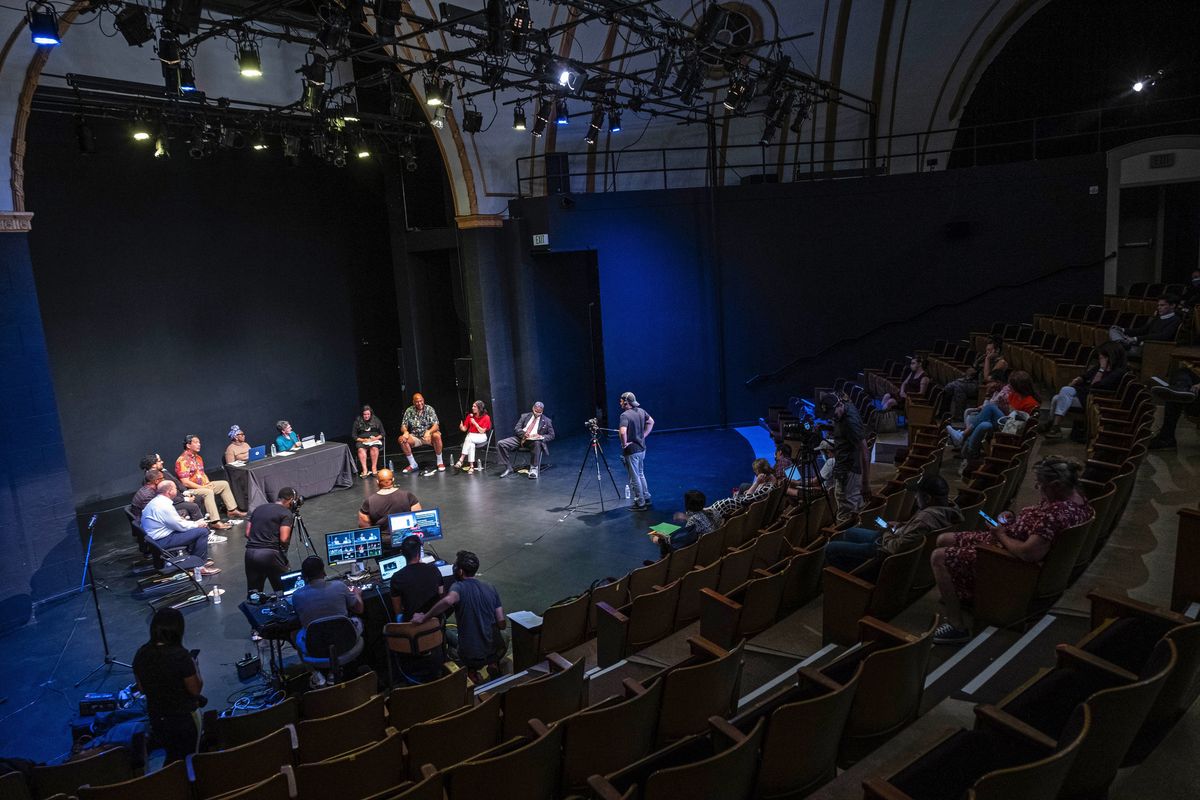Seattle mayoral primary sets up fight between liberal camps

SEATTLE — Voters in Seattle’s mayoral primary on Tuesday set up a choice between candidates representing the political divide between activist-left residents and more moderate progressives in one of the nation’s most liberal cities.
Bruce Harrell, a former City Council member who has called for hiring more police officers to stem a rise in shootings and who is endorsed by the business community, was leading all candidates in early returns. The top two finishers in the nonpartisan race advance to the November election.
He will likely face City Council President M. Lorena González in the general election. González, who was finishing in second place, has been critical of Seattle’s police and has called for reform of a department that is under federal supervision after the Justice Department found a pattern of excessive force and evidence of biased policing.
She embraced calls to “defund” the police following the murder of George Floyd last year.
Votes will be counted for several days in the city’s all-mail election, but Harrell and González were easily outpacing the other candidates.
Seattle’s primary election happened during an ongoing surge in shootings, a recent phenomenon echoed in other large cities in the U.S. Worries about inequity in a city with skyrocketing home prices and a vexing homelessness problem were also big issues between those running for the city’s highest office.
But it was the increase in violence that marked the ending weeks of the primary campaign.
In late July, four people were fatally shot across the city over a 24-hour period. Incumbent Mayor Jenny Durkan, who is not running for reelection, and interim police Chief Adrian Diaz have announced more than $10 million toward violence prevention and $2 million for a pilot program that approaches violence from a public health perspective.
Diaz has said more than 200 officers have left the department since large, sometimes violent protests in Seattle last summer. He said the department, which was criticized by City Council members and others for being too aggressive and quick to deploy tear gas and other measures during protests, was in a “staffing crisis.”
Seattle’s primary came weeks after Democratic primary voters in New York’s mayoral race chose a former police officer who objected to calls to “defund the police.”
Harrell has committed to hiring more officers “to address both the gun violence epidemic and other urgent public safety concerns.” He grew up in Seattle’s Central Area, a redlined neighborhood; his father was a Black transplant from the Jim Crow South, and his mother’s family was Japanese and interned during World War II. An attorney, he served three terms on the City Council, advocating for police accountability.
“People are tired of this fighting in Seattle,” Harrell said after the initial results were released. “The city is expecting me to come up with new solutions.”
González’s parents were migrant farmworkers in central Washington; she picked cherries as a child before becoming a lawyer and representing victims of police brutality. As council president she has helped pass a payroll tax on big corporations, such as Amazon, to pay for city services, as well as worker protections such as a secure-scheduling law.
On Tuesday night, she said people want a mayor “who will stand up to big, wealthy corporations.”
Seattle, home to Amazon and legions of wealthy tech workers, is a notoriously difficult city to govern and one with a fickle electorate. The last three mayors elected by the people have not served more than one term.